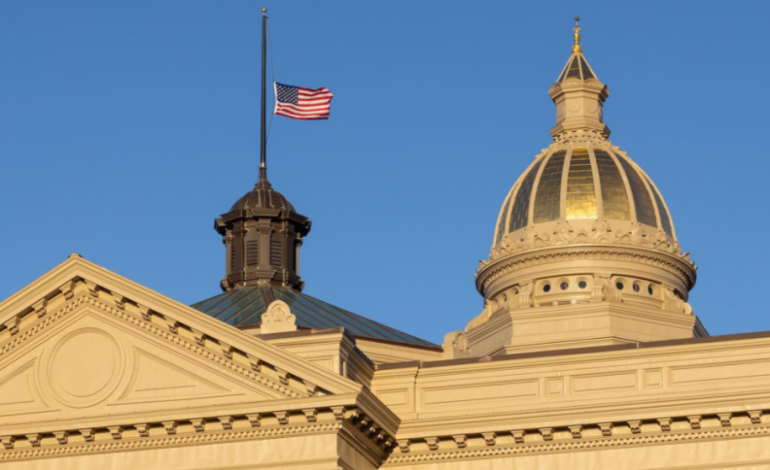Day 3 of the 2025 Wyoming legislative session was marked by a series of debates, bill advancements, and a notable apology from a state senator, Cowboy State Daily reports.
Lawmakers made swift progress on several key bills while also addressing contentious issues on the House and Senate floors.
One of the most debated pieces of legislation, the “What is a Woman Act,” advanced through the House, but not without strong opposition and significant discussion about its potential enforcement. The bill, which restricts bathroom use in public spaces based on biological sex at birth, spurred lively debate about how such a policy could be practically applied and its potential implications. This bill, which seeks to define gender based on biological sex across various sectors of Wyoming law, will likely continue to generate conversation as it moves through the legislative process.
In addition to the debate over bathroom restrictions, the session saw an emotional moment when state Sen. Larry Hicks publicly apologized to Sen. Eric Barlow after criticizing his abortion voting record. Hicks had challenged Barlow’s stance on abortion during a committee session earlier in the week. On Thursday, Hicks acknowledged his missteps and expressed respect for Barlow’s evolving position on the matter.
The Senate Appropriations Committee also passed a bill unanimously aimed at preventing foreign adversaries from acquiring property near critical infrastructure in Wyoming. This bill seeks to enhance the state’s security by blocking foreign influence near sensitive areas, and its passage marks a step forward in addressing national security concerns within the state.
Other legislative highlights on Day 3 included the advancement of bills that would streamline the process for removing squatters from properties and increase penalties for such actions. These proposals have received strong support from legislators who believe that the state should make it easier to address property rights issues and hold individuals accountable for unauthorized occupancy.
The Senate also passed a controversial eminent domain bill, which revives a ban on anyone except public utilities using eminent domain to acquire land for electrical systems. This bill has sparked significant debate due to concerns over land rights and government powers.
In another contentious development, Wyoming lawmakers discussed a potential pause on a state Supreme Court ruling that allows counties to charge state government property taxes. This ongoing discussion centers on the balance between state and local taxation powers.
Additionally, the Wyoming Senate unanimously advanced a bill that would make an individual’s non-citizen status more noticeable on state-issued IDs. This move aims to clarify identification for residents who are not US citizens, with proponents arguing it will help distinguish between citizens and non-citizens.
The legislative session also saw some lighter moments. Former House Speaker Albert Sommers visited the Capitol for the first time since the start of the session, attending a livestock conference and taking the opportunity to reconnect with colleagues. Meanwhile, a group of freshman House members surprised newly elected House Speaker Rep. Chip Neiman with rocks on their desks as a lighthearted gesture.









